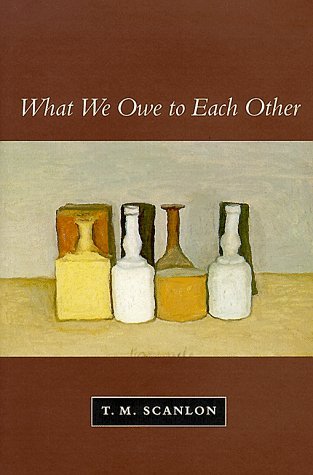What do you think?
Rate this book


Unknown Binding
First published January 1, 1999
I myself accept contractualism largely because the account it offers of moral motivation is phenomenologically more accurate than any other I know of. It captures very accurately my sense of the reasons that ground and shape my thinking about central questions of right and wrong.